Do you feel like an outcast? Do you feel different, teased or even rejected? Being a black sheep in the family can be an emotional and psychological struggle.
Family dynamics can be complicated. Every family has a designated role for each member. And “the Black Sheep” is one such role that makes you feel ridiculed, isolated and neglected. As you become an outcast, you start to close yourself off from others and share less leading to a lot of trauma simmering inside. No one wants to be the black sheep in their family. We all want to be accepted and belong to our tribe… our family. However, being the black sheep means you will never experience that feeling of acceptance and belonging. But it can also come as a blessing in disguise.
Being the black sheep in the family
It certainly is emotionally and mentally taxing when you are the black sheep in the family. You are misunderstood and called “weird” because you look at things differently. But it’s not just your perspective on life, it could be any number of things that can make you the black sheep – your lifestyle, your choices, your decisions, your physical appearances or some specific traits – the list could go on and on.
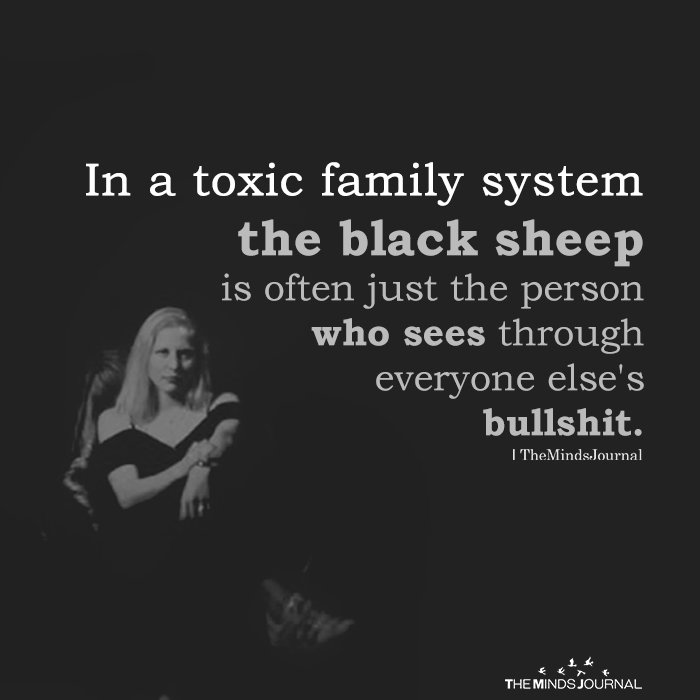
Although your family members might not have directly rejected you or ridiculed you, you always felt this indescribable feeling that you were the black sheep. That you were different. Or maybe it was more direct. Maybe you were treated differently and were called out or even kicked out. Whether it was subtle or explicit, your family made sure you knew you were the one. That was your role in the family.
Elizabeth Dorrance Hall, Ph.D., assistant professor of communication at Utah State University, writes “Being the black sheep of the family is undeniably hard. Black sheep are treated differently, excluded, or disapproved of by the rest of the family. People are considered black sheep for a wide variety of reasons, including leaving the family religion, not following prescribed gender roles, having different values or beliefs than the rest of the family, or loving/marrying an “undesirable” partner.”
Also read: 5 Scenarios Where Breaking Up With Your Parents Is Healthy
What is the black sheep?
The black sheep in the family usually refers to the ‘peculiar” member of the family who is a clear misfit. The black sheep is unlike the other members in the family unit and is considered to be the worst member as they are different. It is considered that the black sheep has a bad reputation and makes wrong decisions. They are the one who do not fit in with the rest of the family and do not follow the rules of the family.
However, this is far from the truth. A black sheep is simply a unique individual who is different from the others. They may be more sensitive, creative or even more risk-taking than the other family members. They may have different values, choices and lifestyle which makes them stand out. And perhaps this is why they experience a lot of struggles as they fail to blend in with their families or communities.
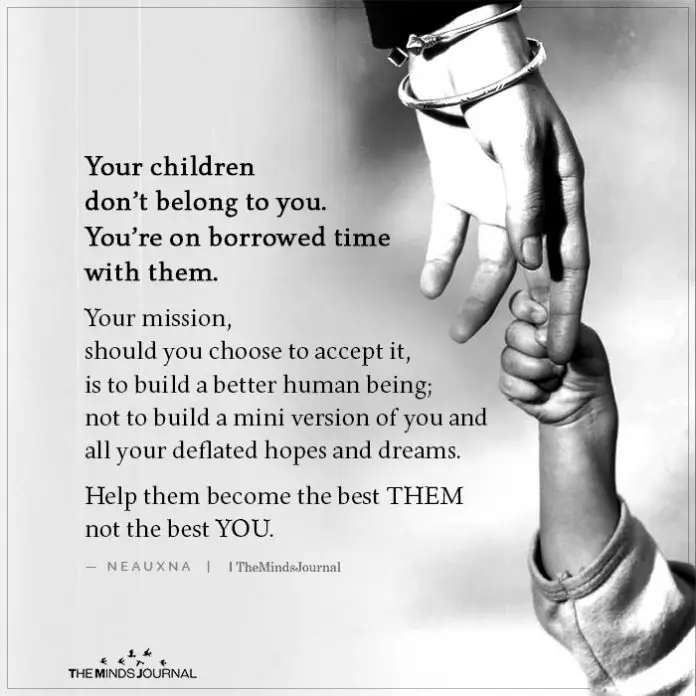
The term came into existence from the fact that black lambs or sheep are rare and considered less valuable compared to white sheep as their wool is harder to dye. During the 18th century, the word started taking a negative meaning and became a phrase that implies the odd one out in the family.
However, Elizabeth believes it is more appropriate to identify black sheep in the family as “marginalized family members.” She adds “We often talk about family as having a black sheep and a golden child as the two big roles among siblings, and it feels to a lot of people like someone needs to fill those roles.” Families tend to marginalize or alienate the members in the family who act and behave differently as families believe that criticizing them will make the black sheep realize their ‘mistake’ and “bring them back into the group.”
Elizabeth Dorrance Hall says “There are more layers in what’s going on in families, but it’s human nature to marginalize others who act differently and express a different identity.”
Also read: 6 Lies Narcissistic Parents Make Their Children Believe
Understanding the black sheep
“The phrase ‘The Black Sheep of the Family’ isn’t a term listed in the Diagnostic and Statistical Manual of Mental Disorders. It’s not like there’s one single, defined, universally-agreed-upon definition of this term (and certainly not clinically) but it’s nonetheless a phrase that has largely infused our collective cultural lexicon over the years,” explains psychotherapist Annie Wright.
According to the Family Systems Theory developed by Murray Bowen, MD, every family is a system and unit. The black sheep or the ‘identified patient’ “is part of a family’s collective, unconscious psychological projection process where they essentially defer and outsource the pain, tension, and anxiety felt within the dysfunctional family system onto one person…” says Annie. The black sheep “holds” this energy from the family in a physical, psychological and emotional way. However, this eventually comes out though various behaviors and symptoms which the family members use to blame the identified patient further.
Annie adds “In this way, the identified patient is the so-called family scapegoat, the proverbial ‘Black Sheep’ serving as a “protective function” for the family’s larger dysfunctional patterning.”
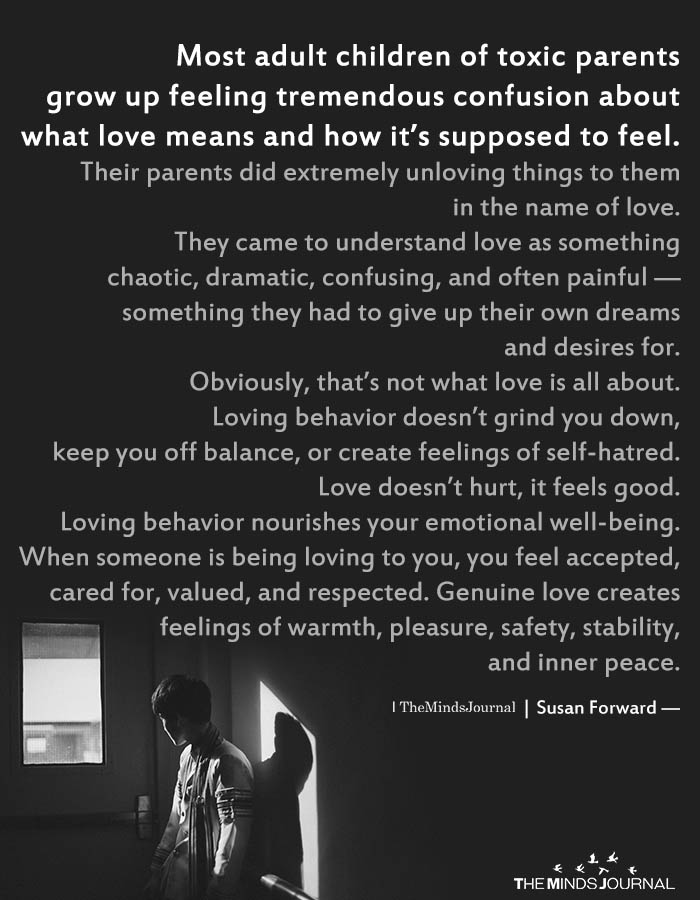
Apart from this, a black sheep in the family may also resemble ‘the abandoned child’ archetype or ‘the orphan’ archetype. These archetypes describe an individual who has a hard time fitting into their family, whether physically, mentally, emotionally or spiritually. So if you can relate with the identified patient or abandoned child or the orphan archetype, you can realize that the common theme is related to being rejected, misplaced and misunderstood, believes psychotherapist Annie Wright.
Also read: 8 Toxic Things Parents Do That Keep Their Children From Being Successful
Are you a black sheep in the family?
Still not sure if you are the black sheep in the family? Then here are a few signs that will help you identify if you are a marginalized family member:
1. They talk behind you
You feel that your family members talk behind your back and think of you as the black sheep in the family. In fact, some well meaning relatives, cousins, neighbors or friends have told you about how negatively your family talks about you when you’re not present.
2. You don’t fit in
You feel disconnected from your family as you have nothing in common with them. Your personality, attitude, outlook, thoughts, interests, passions are very different and appear “weird” to your parents and siblings. Hence, your family starts treating you differently, which is obviously unhealthy. This can even lead to repeated acts of humiliation and bullying.
3. You keep things to yourself
You tend to ignore things about yourself. You don’t feel the need to inform your family members about your failures or accomplishments as you think it’s not important to them. You don’t even bring your partner to meet your family or inform them that you’re dating someone.
4. You seek approval
You constantly feel the pressure to prove yourself to the members of your family. However, you know you will never succeed in getting their approval despite how badly you want it.
5. You’re the scapegoat
A family member is constantly angry and they mostly choose to take their anger out on you for no apparent reason. You don’t know clearly about the family dynamics and no one bothers to tell you anything. Your family life is rather unpleasant and not at all comforting.
Also read: How Parents With Core Shame Can’t See True Essence Of Their Children
6. You have different beliefs
You don’t think it’s important to mention that you have different religious and spiritual beliefs. You feel it’s better to keep it low key than make a big deal out of it.
7. They don’t know about your career
Your family doesn’t know much about your career. You don’t inform them about how well you’re doing or how badly you’re struggling. Even if you are looking to change your job or planning to start your own business, you don’t feel there is anything to tell.
8. You want to be admired
Even though your romantic partner, friends, associates, and coworkers tell you how talented, intelligent, and amazing you are, you seek the same level of admiration from your parents & siblings.
9. You are ridiculed
Your family members often ridicule you or criticize you in front of others. This can be either in a rather subtle manner or in an outright aggressive way. They tell you directly that you don’t belong in the family. Moreover, they stop inviting you over for events or don’t inform you anything about the family.
10. You hide the real you
You definitely don’t want to talk about your sexual orientation or your unique perspectives as you just know they simply wouldn’t accept it. You feel it’s better to hide the real you from them and let them think what they want about you.
All the experiences and feelings associated with marginalization can be severely emotionally damaging and traumatizing. This can directly affect your self-esteem and sense of self-worth leaving you feeling abandoned, neglected, and lonely. But you need to remember that the trauma can end only when healing begins.
Also read 10 Signs You’re The Black Sheep In The Family
Coping with marginalization
While being the black sheep in the family will be difficult and different for most of us, however, almost all of us have learned to deal with the pain that comes from being a black sheep in our own unique way. Psychotherapist Annie Wright says that our own unique coping strategies and mechanism will serve us “extremely well just to survive and make it through that experience of being rejected, misunderstood, or feeling ‘other’.”

According to a 2016 study by Elizabeth Dorrance Hall Ph.D. “people living at the edge of their familial group as marginalized members (i.e. black sheep)” find multiple and personalized ways to become more resilient. Elizabeth explains “Recent research identified five ways black sheep stay resilient despite their stressful position in the family. Resilience is all about adapting, moving forward, and coping with marginalization without ignoring or forgetting about one’s negative family experiences.”
Here are the 5 coping strategies discovered by the research conducted by Dorrance Hall:
1. Rely on your communication networks for support
Although black sheep might feel disconnected from their immediate family, they do connect with their “chosen” families” or “adoptive kin”. This can include anyone from family members who are genuine and appreciate them like select siblings to extended family members, relatives or friends. You can lean on people you are close with to seek some much-needed support.
Elizabeth writes “Resilient black sheep invest in the relationships in their lives that are genuine and loving.” She adds that their chosen” families “are people who fulfill family roles and functions, but are not necessarily related to them.”
2. Transform your negative experiences
Use your marginalization, recognize all your negative and traumatizing experiences and reframe into positive outcomes while acknowledging your pain. There is a positive side to every negative experience. There is always a silver lining. Instead of marginalizing yourself, bring your focus on the positive outcomes that all the challenges can bring in your life. Being a marginalized family member can be a very powerful experience that can make you extremely resilient.
In a Psychology Today article, Elizabeth explains “Be proud of your differences. Focus on the ways you are stronger today because of what you have been through. For example, some black sheep shared that they sought higher education to support themselves, just in case their families disowned them or refused to support them later in life.”
3. Create personal boundaries
Creating personal boundaries is another excellent protective measure to cope with marginalization and be more resilient. Restricting your exposure to your family can enable you to move ahead and start fresh. You can do this by either physically moving away from your family or limiting what and how much your family members know about your personal life. Establishing psychological and physical boundaries is a great way to protect yourself from emotional and mental pain.
Elizabeth adds “Creating physical distance from the family by moving away or limiting face time tends to protect black sheep from future interactions that are marginalizing. Other black sheep simply restrict what they talk about with their family.”
Also read: Family Estrangement: How Grown-Ups Pull Away From Toxic Families
4. Lessen the impact of marginalization
In the study, participants who are black sheep in the family claimed that they downplay the marginalization experience. This resilience strategy enables them to understand their negative experiences better. You can even reduce the importance of family relationships to look at the marginalization from a different perspective. “You can change the meaning of your marginalization by changing the way you think about it,” says Elizabeth.
“Some black sheep insist that their marginalization does not bother them. They do this by reducing the influence their family relationships have on their lives… For these black sheep, family opinions become less valuable over time,” she adds.
5. Be your authentic self
Irrespective of whether your family approves of your lifestyle of choices, live your life as genuinely as possible. The study found that participants claimed to be true to themselves despite their family’s disapproval. However, the researcher observed there was an underlying anger in the respondents which was effectively used in accomplishing productive life goals. Moreover, it was also found that the participants became proud of what they were marginalized in the first place whether it was their choices, values, or sexual identity.
Elizabeth Dorrance Hall writes “These black sheep decided that being true to who they are was more important than fitting into a mold determined by their parents. Despite knowing the consequences of being different and going against their family’s wishes, these black sheep were proud, and valued their identities over their family’s acceptance of them.” So make sure you are always true to yourself no matter what the cost is.
Why being a black sheep is a powerful thing
When you learn to cope with being the black sheep, you can finally start realizing it’s not all bad. Not everything is negative and dark. You will realize that along with the darkness, being the black sheep in the family can also bring some unexpected light in your life. “As with everything in life, along with a ‘shadow side’ comes a ‘light side’ which means there is actually a tremendous amount of gift, opportunity, and power that can come with living out the ‘black sheep’ archetype,” says psychotherapist Annie Wright.
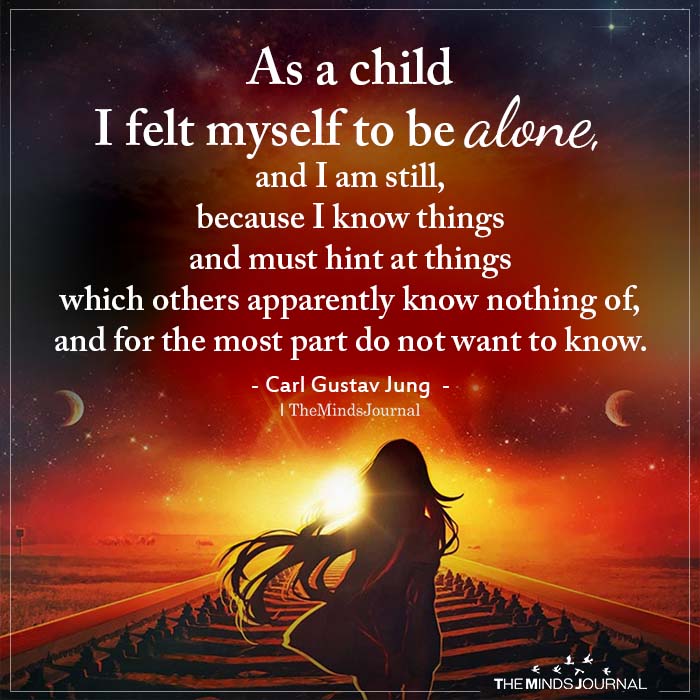
Being a black sheep in the family simply means that you’re guilty of being different. And that can be a very positive thing. Although marginalization can be a painful experience, it can be a blessing in disguise as well.
Here some gifts that come along with being a black sheep or a marginalized family member:
1. You become independent
Sometimes the feelings of acceptance and belonging come with a great sacrifice. When you want your family to accept you, you need to restrict yourself from being the authentic you. You learn to hide your true self so that you can fit in. When you acknowledge your status as the black sheep in the family, you become free to live your life the way you want. As you don’t need to please anyone anymore, you can finally be true to yourself without sacrificing your beliefs and values.
2. You get more choices
Being black sheep offers you enhanced lifestyle options and choices. When you are not tied to the expectations of your family, “you have a greater opportunity to craft the life you truly want, not just the one you’re ‘supposed to have.’ You can more fully choose how you want to love, politic, work, dress, worship, and nourish and build community,” says Annie.
3. You get rid of toxic people
Although you may feel like you don’t belong in your own family and end up feeling isolated and lonely, it can often be better for you in the long run. As you start coping with being marginalized, create boundaries and distance from your family, you will start to distance yourself from the constant ridicule, humiliation, criticism, and control. As you cut away toxic people from your life, you will be able to improve your mental health.
Also read: 10 Ways To Deal With Toxic People Who Spread Negativity
4. You are more compassionate
Being a black sheep in the family makes you more compassionate towards others who are different. You become more empathic towards people who don’t fit into the community and aren’t able to live up to the standards set by our society. Annie Wright adds “Pain can create empathy, and empathy can create a connection. I think that one of the great gifts of being “the black sheep” is the opportunity for increased empathy and compassion for so many others who society often deems as other.”
5. You become stronger
Pain makes you stronger. When you are unaccepted and unloved by your family, you learn to love you yourself through a lot of mental and emotional suffering. As you grow through all the hatred and self-criticism, you learn to accept yourself and stand up for yourself. You realize that you will not break despite what life throws at you. You know that despite how hard the times may get, you will always emerge stronger than before.
Annie adds “Those who embody “the black sheep” of the family may often have more psychological “scars” than other, more accepted family members, but they may also have a greater sense of self than others in the family, too.”
Also read: 11 Ways To Cope With A Toxic And Estranged Family Relationship
Be your unique self
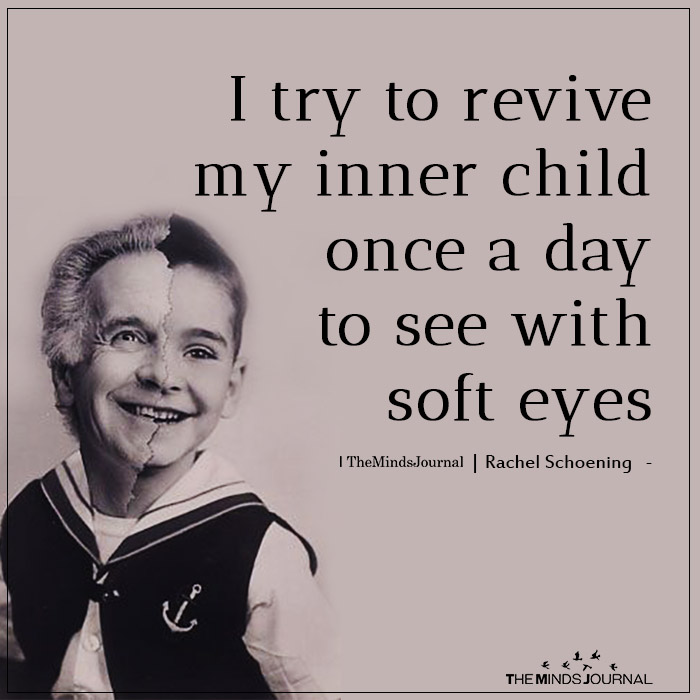
“Do not cringe and make yourself small if you are called the black sheep, the maverick, the lone wolf. Those with slow seeing say that a nonconformist is a blight on society. But it has been proven over the centuries, that being different means standing at the edge, that one is practically guaranteed to make an original contribution, a useful and stunning contribution to her culture.” – Clarissa Pinkola Estés, Ph.D.
Even though your family might refuse to accept you as you are, what truly matters is if you accept yourself… if you accept your genuine and most authentic self. Being a black sheep in the family is difficult and traumatizing. But it can ultimately help you in connecting with your inner self and unapologetically embrace who you truly are.
Just because you don’t have much in common with your family, it doesn’t mean you are an “oddball” or “weird”. It simply means you are different. It means that your family members feel intimidated by you which is why they want to make you feel bad for being who you are. This is why they want you to change and be more like them. But that doesn’t mean you have to change who you are. Why? Because there is nothing wrong with you.
You are perfect just the way you are. And it’s about time you start acknowledging that.
Be genuine. Be proud. And be openly yourself.
Also read: Surviving Christmas: 11 Ways To Deal With Your Toxic Family During The Holidays
Here is an interesting video that you may find helpful:
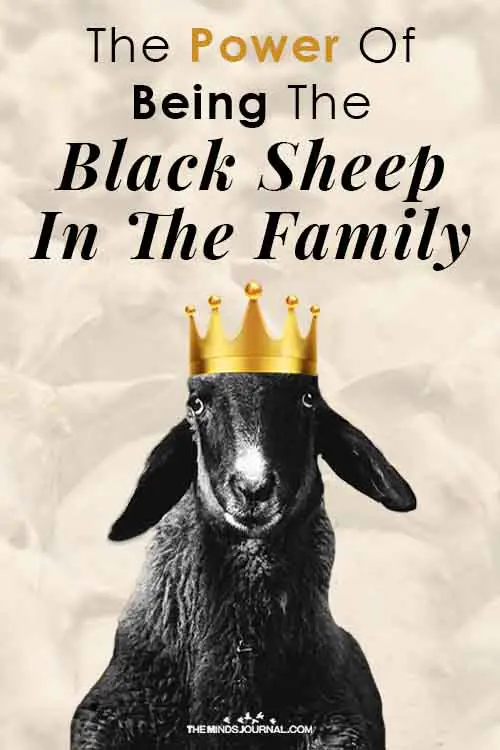
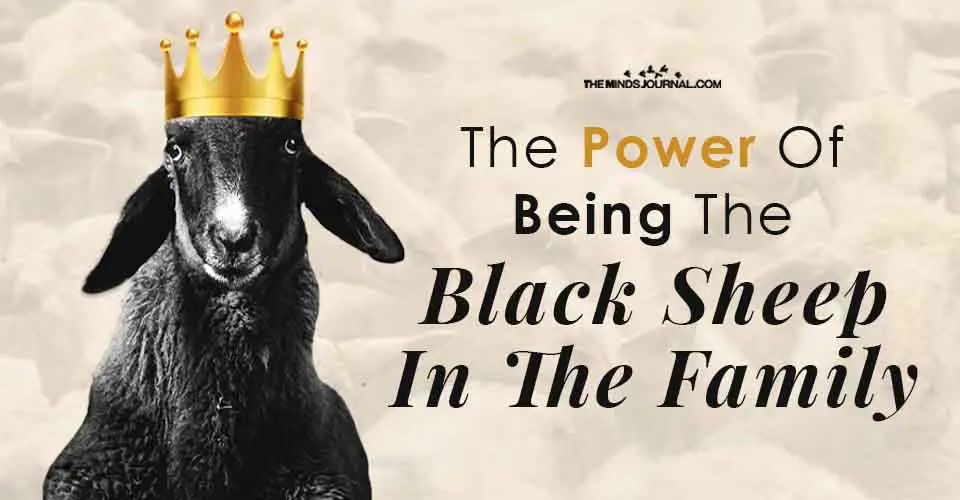






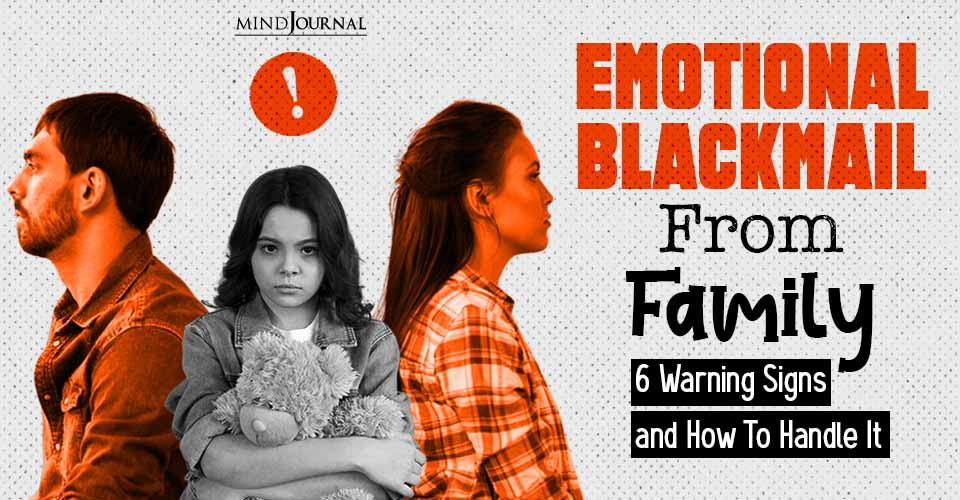
Leave a Reply
You must be logged in to post a comment.